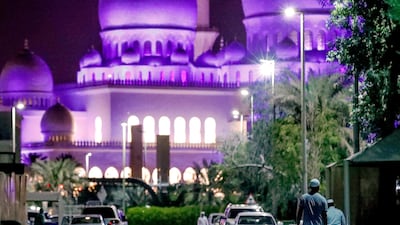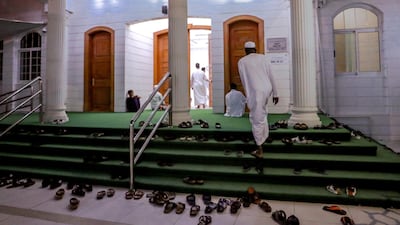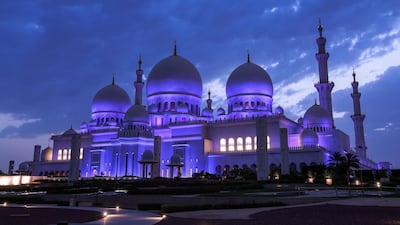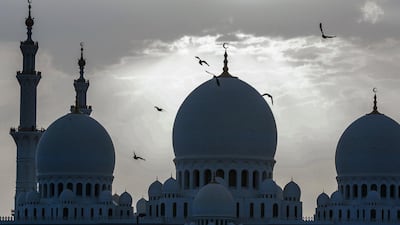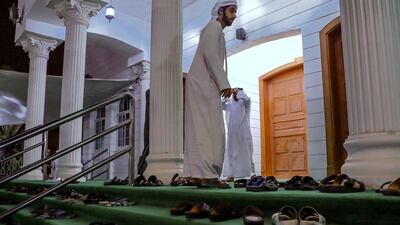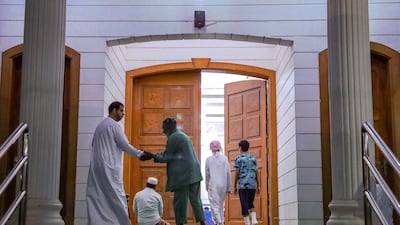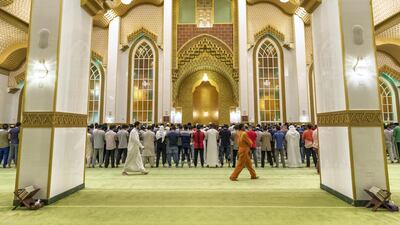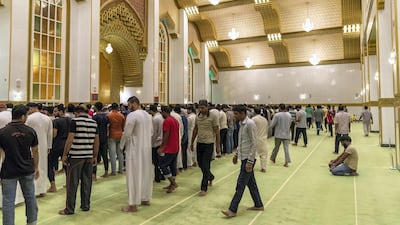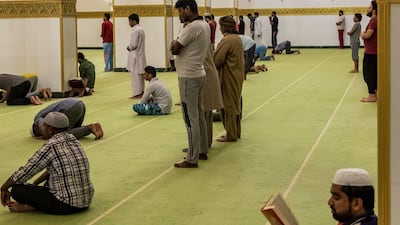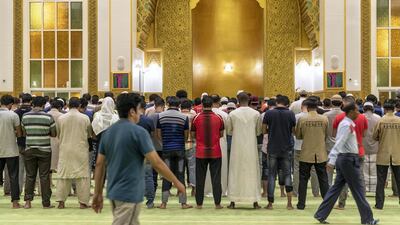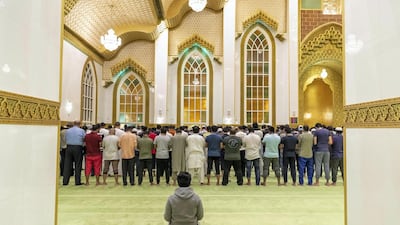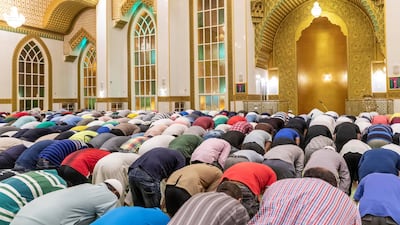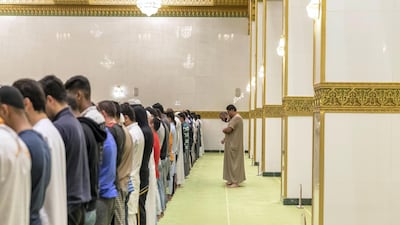Hundreds of worshippers gathered at Al Salam Mosque in Dubai to perform the first morning prayers of Ramadan.
As muezzin’s prayer call rose above the city, the crowds drank their final sips of water and aligned for fajr prayers. Some brought their children who would rub their eyes between rukas.
For Bothayna Sadeq, a Jordanian woman who moved to the Emirates ten years ago, Ramadan is all about spiritual reflection and dwelling on the culture and heritage of Islam.
“I woke at 3am to arrive in time for the fajr prayers. I want to dedicate this month for praying, reading Quran as much as possible and donate money to the needy.”
The 53-year-old said: “Fasting gives you a special kind feeling. It’s about sensing the need of the poor. I, my two sons and grandchildren try giving away even before Ramadan. So people can prepare themselves for the holy month.”
She said she likes to use the spirit of the month to teach her grandchildren the importance of giving, fasting and praying.
“I am planning to read some stories about Prophet Mohammed to them too,” said Mrs Sadeq.
_______________
More on Ramadan 2018:
FAQs: all you need to know about the holy month in the UAE
President announces new law affecting every mosque in UAE
If Ramadan starts on Thursday, when is Eid Al Fitr?
Ramadan 2018: Dubai restaurants open during the day
_______________
Fatima Badir, an Emirati mother of three, said that, for her, Ramadan means exercising patience and selflessness.
“I look forward to donating and doing good for others. I will cook some meals and distribute them to the needy. Fasting throughout the day is a reminder on how many people are starving around the world,” said Mrs Badir.
“Performing prayers give Muslims a special kind of feeling in Ramadan. It’s like cleansing of the soul.”
She woke her children early on Thursday morning so they too could pray.
“Instilling in our children the importance of performing prayers is a must. In this time and age, there are so many distractions from following the path of Islam and performing the simplest acts of worship. We need to teach the younger generation and our children about the importance of fasting, praying and helping others,” said Mrs Badir.
The opportunity to gather family together more regularly is also another part of Ramadan that Mrs Badir loves.
“We constantly invite family members for iftar meals in Ramadan. We all gather, recite du’a before Al Maghreb prayers. It’s so beautiful”
Hadeel Yousef, a 17-year-old girl who came to the mosque to perform prayers with her father, said she looks forward to Ramadan each year.
“I really admire this month. It gives me a sense of spirituality and closeness to Allah. I was taught since I was a little child not to miss any prayers, read Quran on a daily basis and not be distracted by television or anything. This month is dedicated to worship Allah,” she said.
“My father organises gatherings with some family members and friends. After Iftar, we perform night prayers and Taraweeh prayers. Also, the last ten night of Ramadan give you a special kind of feeling.”
Sami Alaa, a 31-year-old Syrian, said that he understood the importance of fasting and performing acts of worships during the holy month from his parents.
“When I was younger I used to enjoy Iftar meals, gatherings with family and friends and watching programmes in Ramadan. My father would tell me the reasons behind fasting in order to feel empathy for those who are suffering in extreme poverty. As I grew up, I began to understand that Ramadan is not about the lavish meals or the television programmes. It is about developing one-to-one relationship with Allah,” said Mr Alaa, who moved to Dubai when in grade six.
“Ramadan is a month of deep meditation and self-control It is a month when Muslims can ask God for anything and it will happen.”

